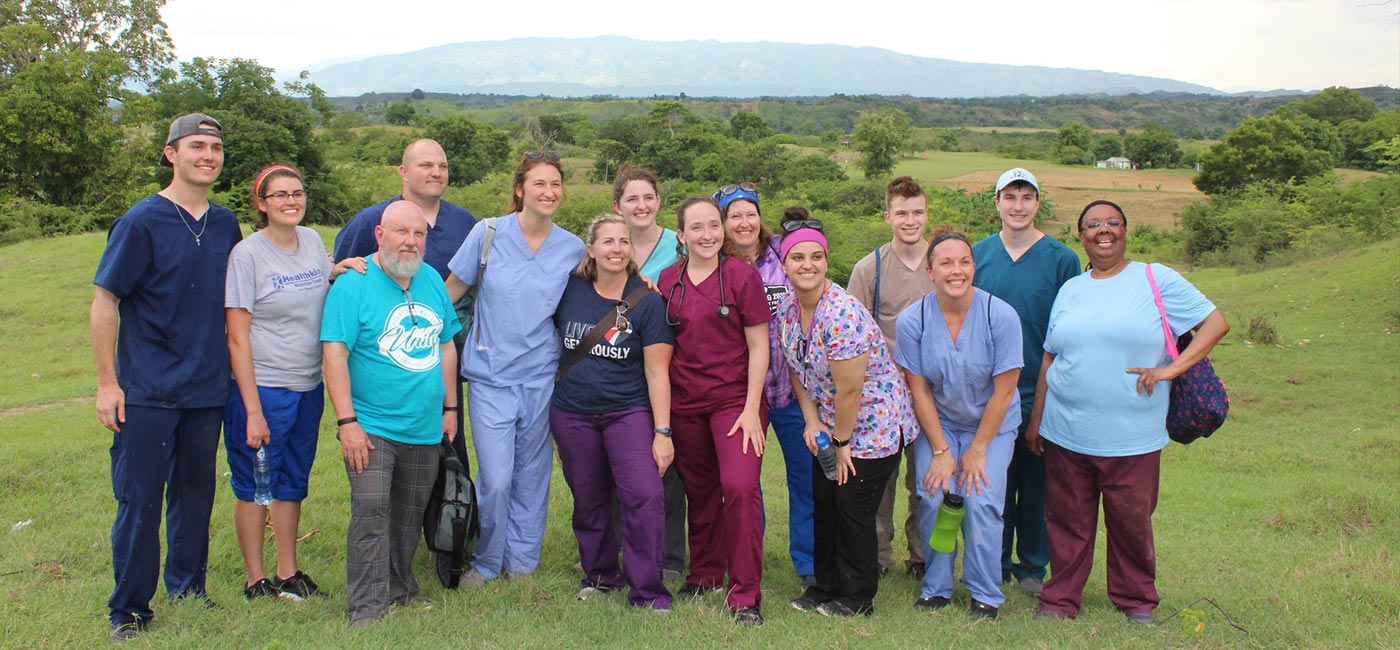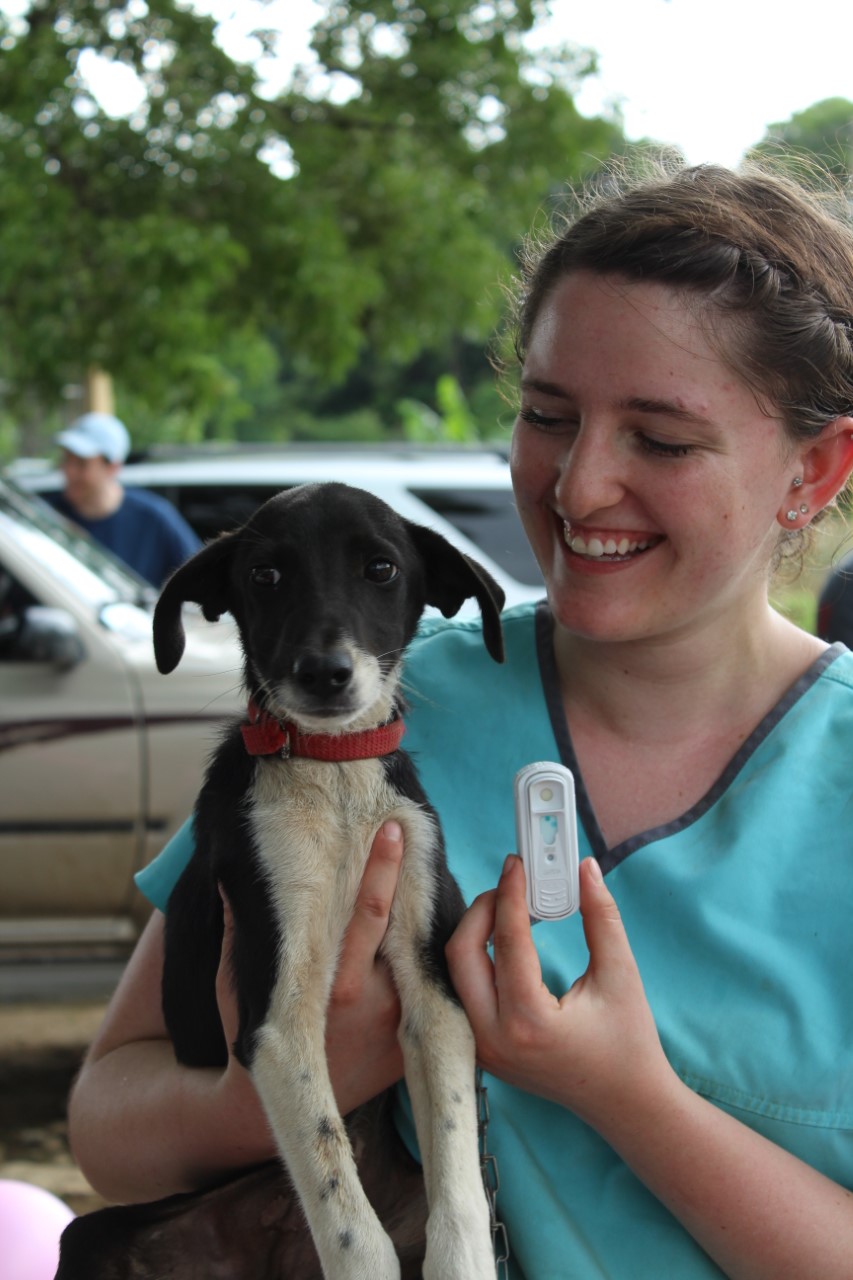
A trip to the Dominican Republic turns into a great learning experience for University of Saint Francis pre-veterinary students.
On the first day of their trip to the Dominican Republic, University of Saint Francis pre-veterinary students Olivia Obringer and Jack Harris wondered if the pace would pick up. They helped Dr. Paula Johnson treat a few animals in a remote mountain village at the Haiti-Dominican border.
Word spread overnight.
To say the work increased would be an understatement.
“The second, third and fourth day, it was super crazy,” Obringer said.
“We were slammed,” Harris said, “Animal after animal after animal – it was awesome.”
Obringer and Harris were part of a new facet to an annual USF medical mission trip to Haiti, rerouted to the border this year due to travel restrictions. The trip is financially supported by Formula for Life, and the USF group collaborated with Building Bridges of Hope.

While students pursuing nursing and medicine were again part of the trip and served many people from May 23 to 28, this marked the first hands-on foray into animal care. Dr. Johnson, from Purdue University College of Veterinary Medicine, led and supervised the animal care.
Dr. Johnson and the students examined and treated 48 dogs, 42 goats, 30 pigs, 13 cows or bulls, five cats, one boar, one calf, one donkey and one horse. On the final day, animals were still lined up down the road as time ran out.
Dr. Johnson and the students tested the animals for diseases and gave vaccinations. Dogs and cats received rabies vaccine and flea and tick treatment. Larger farm animals were dewormed and treated for parasites. Bags of food and leashes were also distributed.
It was an eye-opening experience for the pre-vet students.
“I had never worked with large animals before, only dogs and cats, so this was a whole different experience,” Obringer said. “With the pigs, you had to climb on top of them and hold them by the ears while someone else squirted the medication in their mouths. They were screaming bloody murder, so loud the people inside wondered what was going on.”
Numerous attempts were made to restrain one very large boar for treatment but it was resistant. Finally, several Dominican men stepped up and helped corral the boar by wrapping it tightly with a rope around a tree.
“Going into the trip, I had never handled, one on one, goats and pigs and animals like that,” Harris said. “I was kind of hesitant about how to go about restraining them. The first day or two I figured it out and got used to it. It was a good learning experience.”
Obringer and Harris have strong backgrounds in animal care. Obringer works with Northeast Indiana Veterinary Emergency & Specialty Hospital (NIVES) and the Fort Wayne Children’s Zoo. Harris works at Pine Valley Veterinary Clinic.
“I really didn’t know what to expect since this was a first-time experience for me,” Dr. Johnson said. “It really worked out great and, along with the two pre-vet students, I think we really made a difference. There was certainly a need for veterinary care and I hope that next year we can expand the services that we can offer to possibly include spay and neuters.”
Both students say they would love to go back again next year.
“I liked dealing with the bulls a lot,” Obringer said. “It required a lot of teamwork. With all the Dominicans around, once they saw we needed help, they helped. Some were holding its tail, some holding a rope around his nose.”
Harris said he learned how Dominicans and Haitians don’t consider their dogs and cats as pets in the traditional sense.
“It was a little culture shock there for me, my first time being out of the country,” Harris said. “Once I set foot outside the airport in Santo Domingo, I’d never seen anything like it. It’s a completely different way of life. It’s chaos and day-to-day life is so different. You come back and appreciate what you have.”
For more information on this trip or future trips, contact Dr. Amy Obringer, USF professor of biology, at 260-399-7700, ext. 8210, or email aobringer@sf.edu.